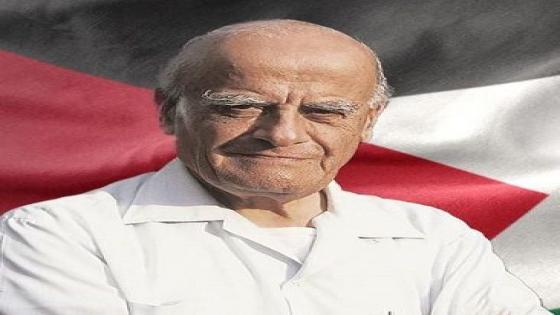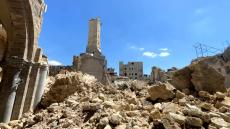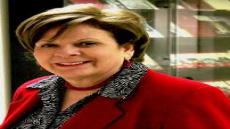By: Jamal Zakout
Before his passing, the late and great Dr. Haidar Abdel Shafi often told those around him that the core of the Palestinian crisis lies in the absence of moral principles guiding political leadership. This noble Palestinian leader believed that honesty and transparency were the foundation of trust between a leader and their people. He warned that the loss of ethics inevitably leads to the loss of the cause itself. He repeatedly emphasized: “We cannot establish a free homeland without first building a morally free human being.” In his view, the liberation of the land was inseparable from the ethical and moral development of the people.
In his landmark speech at the 1991 Madrid Peace Conference, Abdel Shafi stressed that justice and adherence to truth must serve as the primary basis for any negotiation or agreement. He firmly stated: “We do not seek peace because we are weak, but because we believe in justice, truth, and human dignity. Real peace can only be built on honesty and mutual respect.”
Abu Khaled was a model of a leader who represented the national conscience—an exceptional figure whose political conduct was grounded in transparency and integrity. He consistently asserted: “I cannot imagine a national leadership that is not based on honesty with the people. Deception—even if it brings short-term gains—ultimately destroys the cause.” In a 1996 lecture in Gaza on state-building, he declared: “It is not enough to liberate the land; we must also liberate ourselves from lies, corruption, and authoritarianism. Ethics are the foundation of freedom.” And in a message to Palestinian youth at a 1997 seminar in Gaza, he told them: “You are our true hope. Do not let politics become a school for deception or opportunism. Make ethics the foundation of your struggle and public engagement. Whoever loses their conscience loses their homeland—no matter what temporary gains they may achieve.”
In a brief message he wrote on the occasion of the founding of the Palestinian Independent Commission for Citizens’ Rights in 1994, he said: “There is no democracy without ethics, and no rights without justice. Let us place the law above individuals—not individuals above the law.”
Revisiting these statements and recalling the ethical values and principles of national struggle that Abdel Shafi embodied is not merely a matter of nostalgia. It is a response to the dire state of the Palestinian cause today—the conduct of those dominating the political scene and the very real threats of liquidation and loss of rights. Abdel Shafi resigned from heading the Palestinian delegation to the Madrid/Washington peace talks not only because the Oslo Accords were negotiated behind his back by the dominant leadership, but also because the agreement bypassed the core demand of the Washington negotiations: a halt to settlement expansion. This was not only due to the settlements’ blatant colonial nature, but because they directly challenge the Palestinian historical narrative of land and identity—a narrative Israel continues to deny as it clings to a fabricated version that refuses to recognize Palestinians as a people with the right to self-determination in their homeland.
Despite all this, Haidar never shied away from appealing to the people’s will. In the 1996 elections, he won a seat in the Legislative Council by a wide margin representing Gaza City. Yet, true to his principles, he later resigned, convinced that the council’s structure did not allow for proper oversight or accountability—especially of the executive branch, dominated by President Arafat and a largely one-sided political administration.
Today, even amid genocide and the policy of ethnic cleansing aimed at breaking the will of the Palestinian people and subjugating them to the Zionist project—through annexation and liquidation plans—those in power continue to disregard the necessity of unity in facing these existential threats. These plans aim to uproot the Palestinian narrative and presence from the land of our ancestors. What is urgently needed is the revival of inclusive national institutions—not only with Hamas and Islamic Jihad, but also with the founding forces of the Palestine Liberation Organization and the leadership of past uprisings that have reinvigorated the cause and protected the leadership itself.
Any measure within the Palestinian political system, including the recent creation of the Vice President position for the Executive Committee and the State of Palestine, must be evaluated by whether it serves our highest national priority: halting the genocide in Gaza. The pressing question is: does absolving Israel of responsibility for these crimes, while blaming the resistance for their continuation, serve this priority—or does it encourage Israel to continue its atrocities?
Does the creation of this new post—without national consensus, and with the Beijing Document for National Accord pushed aside from the Central Council’s agenda—strengthen our internal front and help generate rational national solutions? Or is it merely an extension of the same failed policies of exclusion, unilateralism, and centralization of power in the narrowest circle, isolating the leadership from the will of the people and making it easier for the enemy to exploit this divide?
Many fundamental questions arise: Why turn away from the path of unity, steadfastness, or at least national consensus? Why persist in a direction that has clearly failed—ever since the abandonment of the model that Haidar Abdel Shafi represented, a model rooted in conscience and respect for the people’s will?
Even if there were once differing views on the Oslo process, the subsequent course of annexation, settlement expansion, and the obliteration of peace process principles—reduced now to the logic of brute force and Israeli dictates, long before October 7—should have settled that debate. This has been confirmed in decisions issued by both the National and Central Councils, which have been ignored and shelved, while the ambiguous and hastily implemented leadership changes were pushed through in less than 24 hours.
Today, mere mourning for the past and the current reality does not change anything. Only through sincere commitment to the values and legacy of the national struggle can those who sense the imminent danger to our collective destiny unite to form a broad national front to rescue it. Such a front must give rise to a unified national leadership capable of restoring the PLO’s role as an inclusive national framework leading the liberation struggle—drawing inspiration from the noble leadership traits that Haidar Abdel Shafi so exemplified.










